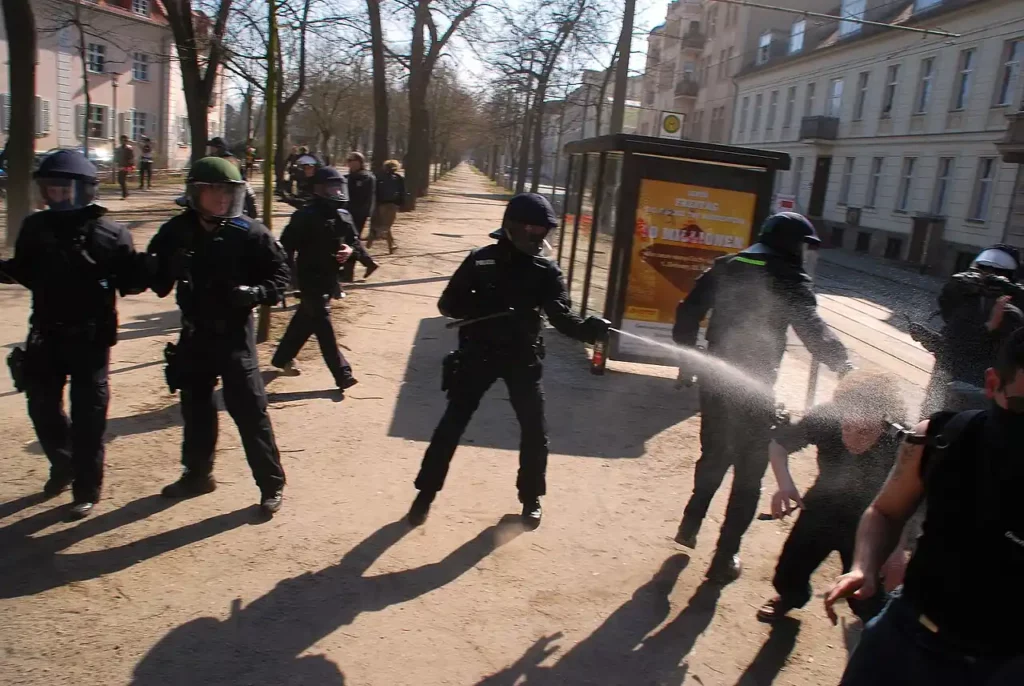
Across the globe, law enforcement institutions play a central role in maintaining order and protecting the public. However, persistent reports of misconduct, excessive use of force, corruption, and abuse of power have eroded public trust in police forces in many countries. While some misconduct can be attributed to individual behavior, in many regions, evidence suggests systemic issues embedded within policing cultures, legal structures, and political systems.
This report presents a comprehensive, evidence-based overview of global patterns of police misconduct. Drawing on international data, human rights reports, and independent investigations, the article documents some of the most critical issues between 2000 and 2025, with historical context and projections for institutional reform.
Definitions and Methodology
Police misconduct refers to actions by law enforcement officers that violate legal, ethical, or professional standards. This includes, but is not limited to:
- Use of excessive or lethal force
- Corruption and bribery
- Sexual abuse or exploitation
- Torture or degrading treatment
- Racial profiling and discrimination
- Fabrication of evidence or perjury
- Arbitrary detention
Sources include Transparency International, Amnesty International, Human Rights Watch, the United Nations, national government databases, and independent journalism. Regional comparisons are used to highlight trends where possible.
Excessive Police Misconduct and Lethal Use of Force
United States
In the U.S., police kill more than 1,000 people annually—more than most developed nations. Black Americans are 2.9 times more likely to be fatally shot by police than white Americans. The killing of George Floyd in 2020 sparked the largest civil rights protests in decades.
Brazil
Brazil reports among the highest rates of police killings worldwide. In 2022 alone, over 6,000 people died at the hands of police, most of them young Black men from low-income areas. Human rights groups allege that certain units act with impunity, engaging in extrajudicial executions.
Philippines
President Duterte’s anti-drug campaign (2016–2022) led to over 6,000 police killings, many without due process. The International Criminal Court launched an investigation into potential crimes against humanity in connection to these deaths.
Police Misconduct, Corruption and Bribery
Nigeria
According to Nigeria’s Bureau of Statistics, 70% of citizens who interacted with police paid bribes. The now-disbanded SARS unit was widely accused of torture, extortion, and unlawful killings. #EndSARS protests in 2020 led to its dissolution, though broader reform remains lacking.
India
A 2019 Transparency International survey found that over half of Indians who interacted with police were forced to pay bribes. Custodial deaths and torture remain significant issues, with over 1,700 reported in a single year.
Mexico
Police corruption is entrenched in many parts of Mexico, with collusion between law enforcement and organized crime. The 2014 disappearance of 43 students in Ayotzinapa exposed widespread abuse and cover-ups involving local police.
Human Rights Abuses and Discriminatory Policing
Racial and Ethnic Profiling
In countries like France and the UK, ethnic minorities face disproportionate policing. A UK report found Black individuals were nine times more likely to be stopped and searched than whites.
Sexual Misconduct
In 2024, England and Wales reported a 70% increase in convictions of police officers for criminal behavior, with sexual offenses being the most common. Victims often cite fear of retaliation and institutional denial as barriers to justice.
Police Misconduct Impunity and Lack of Accountability
One of the defining features of global police misconduct is impunity. Mechanisms for redress often fail due to lack of independent oversight, weak internal accountability, and political interference.
In many African and Asian countries, accused officers are reassigned rather than prosecuted. In the U.S., fewer than 2% of officers involved in fatal shootings are ever charged with a crime, and fewer than that are convicted.
Political Repression and State-Sanctioned Abuse
In some regimes, police are used explicitly as instruments of political repression. In Sudan, law enforcement and military units were involved in suppressing democratic protests. In Russia and China, police forces regularly detain journalists, activists, and ethnic minorities, often without fair trial guarantees.
Reform Efforts and Oversight
Many countries have introduced reforms in response to public pressure:
- Widespread use of body cameras (U.S., UK, Kenya)
- Civilian oversight boards (Canada, South Africa)
- Revised use-of-force policies and de-escalation training
- Legal constraints on police immunity in civil lawsuits
However, critics argue these reforms are often piecemeal and ineffective without deeper structural change, including independent investigative powers and cultural shifts within police institutions.
The Role of Civil Society and Technology
The expansion of mobile technology and internet access has enabled civilians to document abuses in real time. Viral videos have mobilized international attention and sparked mass protests, as seen with the #BlackLivesMatter and #EndSARS movements.
NGOs such as Human Rights Watch and Amnesty International continue to play a vital role in documenting abuse and advocating for accountability worldwide.
Outlook and Recommendations
While progress is uneven, global awareness of police misconduct has grown significantly. Future reform must focus on:
- Independent and well-funded civilian oversight
- Transparent reporting of incidents and disciplinary action
- Human rights-based training and recruitment
- Reduction in the militarization of domestic policing
- Stronger international enforcement of misconduct investigations
Ultimately, rebuilding trust in policing requires a foundational shift in how power is exercised and monitored within law enforcement agencies. As global pressure continues to mount, the choice facing governments is not whether to reform, but how deeply and how soon.
Sources
- Amnesty International
- Human Rights Watch
- Transparency International
- United Nations Human Rights Council
- The Guardian (UK)
- Washington Post Fatal Force Project
- UN Office on Drugs and Crime